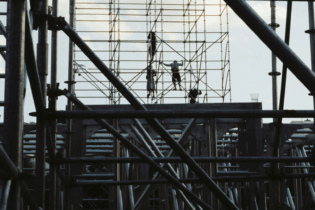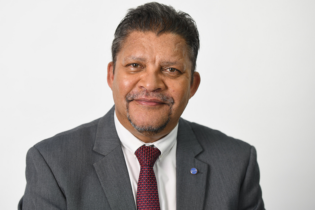Consulting Engineers South Africa (CESA) is currently hosting its annual Infrastructure Indaba at the Spier Conference Centre, Stellenbosch.
Keynote speaker at the event, Minister of Public Works and Infrastructure, Patricia de Lille highlighted the urgency for action in the infrastructure environment. “We are a government of announcements. We need to start implementing those announcements; the patience of our people is running out.” She said government must “Khawuleza – we need to hurry up. Our country is in a bad space – if we sink, we sink together!” The CESA Infrastructure Indaba was opened by Sugen Pillay, President of CESA who stated that he was looking forward to fruitful discussions during the Indaba in line with CESA’s theme of ‘A Time for Reflection, Renewal and Regeneration’, stating that, “as a country, we are going through significant changes with a renewed focus and energy on how we start planning for the future – there is a renewed sense of hope and optimism in the country”. CESA wants to contribute and be part of the discussions focused on this renewal. He discussed the recapacitation of the key state institutions and the value that CESA can bring to this process by partnering with government in order to enable a capable state. “CESA is willing to volunteer our services as the private sector to kickstart the process”, stated Pillay. He went on to state that one in five engineers in the private sector are currently unemployed and that CESA is willing to find a way to assist government in utilising this capacity. He also called for a wider debate on implementation models for delivering infrastructure, where quality should be considered over cost, for the sustainability of the country’s infrastructure. Patricia de Lille proved a thought-provoking keynote address and supported Pillay’s suggestion of a deeper partnership between the private and public sectors. “We will take on the challenge as we try to build capacity within the DPWI. This will be key in speeding up the implementation of infrastructure delivery.” She highlighted that the delivery of much needed social infrastructure will be a priority as the department reconfigures; “We will give infrastructure the attention it deserves.” De Lille painted a forthright picture of the current state of affairs: “As a country, we are on a cliff-edge. There is much anxiety as government speaks honestly about the state of the economy.“As much as there is a profit model, there is also a trust deficit between government and the private sector, which we need to work together to mitigate. We need to restore the drive for collaboration: we cannot do this alone.”
De Lille further discussed the importance of the Presidential Infrastructure Coordinating Unit in improving the efficiency of infrastructure delivery. Gazetted by the President, the unit will fall under the DPWI and will be tasked to develop regulations to give effect to the Infrastructure Act of 2014. “This important piece of legislation has been ignored. I will work with the unit to develop regulations for preplanning, approvals, implementation, operations and maintenance.” The department will also be reviewing the CIDB act related to grading and the register of service providers that should be compiled, and feedback on this will be given to CESA. The Infrastructure and Public Works Bill was mentioned, which is in development and should assist with coordinating the industry and creating a conducive environment for job creation in the private sector. The Minister also discussed the R100-billion Infrastructure Investment Fund, which is a blended fund as the private sector is committed to adding to it. The fund is managed by the DBSA, although the Minister has oversight over it. “However, funding alone is not the problem – the problem is underspending on infrastructure. Preplanning regulations were highlighted as key in getting implementation back on track. Citing the many stalled projects across the country, Minister de Lille said that proper preplanning and preparation will be key in de-risking projects and ensuring smooth delivery. “We have established an MoU with the British government for funding to establish pre-project preparation practices, and have been working closely with Dr Kgosientso Ramokgopa, Head of the Infrastructure and Investment Office in the Presidency in conducting research over the past 9 months on how to change planning methodologies.” The Minister identified the historically disjointed approach to infrastructure investment, citing poor spatial alignment across national, provincial and local government spheres of infrastructure. She also mentioned that finance has taken precedence over the viability and sustainability of infrastructure development. “We need to change this fragmented approach by creating one entry point for all infrastructure development.” She mentioned the National Development Spatial Framework as key in guiding future planning. Addressing the concerns regarding corruption and the Construction Mafia’s interference with projects in private sector, Minister de Lille said that new projects require 30% local content. “If we involve the communities in the beginning, we can effectively counter the bullying in industry in conjunction with the office of the Minister of Police.” “It is an indictment that we have engineers without jobs in the country,” concluded de Lille. “We need to use that capacity to address the broad challenges faced by the industry.” In conclusion Minister de Lille asked the Sugen Pillay, President of CESA to create a database of unemployed engineers and invited CESA to develop a solution together with government before the end of May this year.






